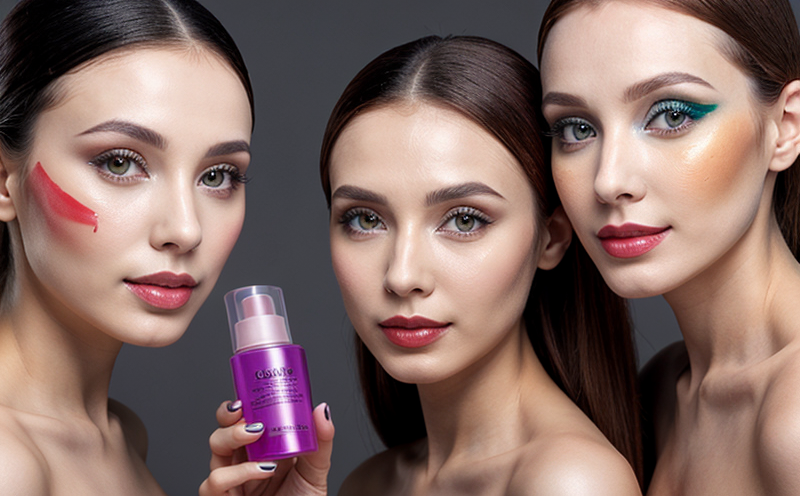Immunotoxicity Testing in Cosmetics
Immunotoxicology is a critical area of toxicological research that examines how chemical substances can affect the immune system. In cosmetics, immunotoxicity testing aims to assess whether ingredients or formulations could impair the body's natural defense mechanisms, potentially leading to adverse health outcomes. This service is crucial for ensuring the safety and regulatory compliance of cosmetic products.
The immune system plays a vital role in protecting the body against pathogens, allergens, and other harmful substances. When exposed to certain chemicals, it can lead to dysregulation or suppression of immune responses. Such effects might manifest as increased susceptibility to infections, allergies, or autoimmune diseases. Therefore, understanding these interactions is essential for developing safe cosmetics.
Immunotoxicity testing typically involves in vitro and in vivo methods to evaluate the potential impacts on various components of the immune system, including lymphocytes, macrophages, and dendritic cells. These tests help identify which ingredients or product formulations could pose risks if used extensively. By incorporating immunotoxicology into their development processes, cosmetic companies can demonstrate due diligence towards consumer safety.
Regulatory bodies around the world recognize the importance of immunotoxicity testing in ensuring public health protection. For instance, the European Union (EU) has strict regulations regarding the use of chemicals in cosmetics, mandating comprehensive toxicity assessments before marketing new products within its member states. Similarly, the United States Food and Drug Administration (FDA), although not requiring pre-market approval for most cosmetic products, encourages companies to conduct thorough testing.
Accurate immunotoxicity evaluation requires sophisticated laboratory equipment and experienced personnel capable of interpreting complex data accurately. At our facility, we employ state-of-the-art technologies such as flow cytometry, enzyme-linked immunosorbent assays (ELISAs), and cell-based models to perform these evaluations rigorously. Our team follows internationally recognized guidelines provided by organizations like the Organization for Economic Co-operation and Development (OECD) and Good Laboratory Practice (GLP).
Our comprehensive approach ensures that every aspect of potential immune system impacts is considered during testing. This includes assessing both acute and chronic effects, as well as examining interactions between different chemicals present in a single product formulation. By providing detailed reports based on our findings, we assist clients in making informed decisions about ingredient selection and reformulation efforts.
Through rigorous immunotoxicity testing, we contribute significantly to safeguarding consumer health while supporting the industry's commitment to responsible innovation. Our services not only meet current regulatory requirements but also anticipate future trends in safety standards, helping cosmetic manufacturers stay ahead of changing expectations.
Why Choose This Test
- Evaluate potential risks associated with specific ingredients or formulations;
- Ensure compliance with international regulatory frameworks;
- Promote safer product development practices;
- Enhance brand reputation and consumer trust;
- Avoid costly recalls due to unforeseen side effects;
- Incorporate advanced technology and expert knowledge into evaluation processes;
- Stay updated on emerging trends and best practices in immunotoxicology research;
- Access detailed insights that inform informed decision-making throughout product lifecycle.
Environmental and Sustainability Contributions
Incorporating robust immunotoxicity testing into cosmetic manufacturing contributes positively to environmental sustainability by promoting safer ingredient sourcing practices. By identifying potentially harmful chemicals early in the development process, companies can reduce waste associated with failed products or those recalled later due to safety concerns.
Furthermore, adhering to stringent testing protocols helps minimize unnecessary exposure of consumers and workers to hazardous substances throughout production cycles. This approach fosters a culture of responsibility among stakeholders involved in cosmetic creation, distribution, and usage. As a result, our services support broader sustainability goals by encouraging more sustainable business operations across the supply chain.
By prioritizing environmental considerations through thorough immunotoxicity testing, we contribute to reducing overall ecological footprints linked with cosmetic production. This includes minimizing resource consumption during manufacturing processes as well as mitigating adverse impacts on human health and ecosystems worldwide.
Competitive Advantage and Market Impact
Leading-edge immunotoxicology testing offers significant competitive advantages for businesses operating within the cosmetics sector. Companies that invest in comprehensive safety evaluations gain valuable market insights, allowing them to anticipate regulatory changes proactively. This foresight enables firms to adapt quickly to evolving requirements without compromising product quality.
Moreover, demonstrating commitment to high standards of safety enhances brand credibility and builds long-term customer loyalty. Consumers increasingly seek out brands known for prioritizing health and well-being over short-term profits. By showcasing transparent testing procedures and positive outcomes from rigorous assessments, companies can differentiate themselves effectively in crowded markets.
The ability to provide detailed reports based on robust scientific evidence also strengthens relationships with key partners along the supply chain. From raw material suppliers to retail distributors, collaboration based on mutual respect for shared values promotes stronger partnerships that benefit all parties involved. Ultimately, embracing immunotoxicity testing fosters innovation and growth within industries committed to sustainable practices.





